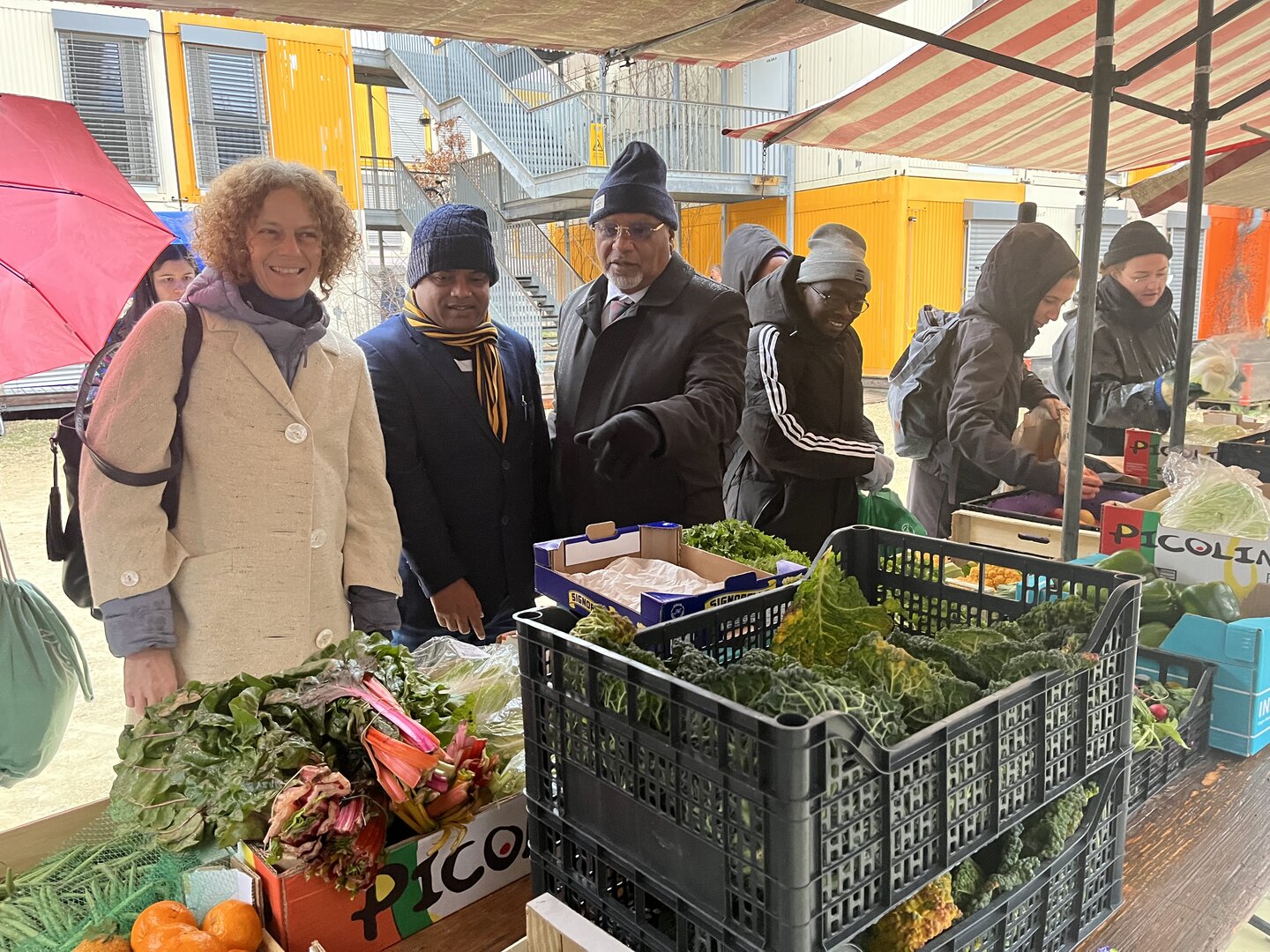Like many secondary cities, the city of Mbeya in southern Tanzania is an important hub in the food system of the region. This is where people, goods, capital and information connect, not only with the surrounding rural and peri-urban areas, but also with other cities and global food markets. Mbeya is a fast-growing city, and the population is widely spread across the valley. Helvetas is helping them keep pace with development.
-
Project NameIC4N - Inclusive Cities for Nutrition
-
Project Phase2022 to 2025
-
FundingCity of Zurich, Donations from Foundations and private donors
-
Thematic focusUrban Engagement
Food & Nutrition
Food insecurity despite a good climate
Despite its fertile agricultural soils, Mbeya struggles to provide its inhabitants with good food. In addition, the city needs to implement a nutritional strategy that gives everyone, especially the most vulnerable, adequate access to food and a sustainable, healthy diet – which is a challenge.
31.5% of children in Mbeya are affected by chronic malnutrition, despite the city being one of the largest food producers in the country and home to a variety of fruits, birds and animals. However, even when the population has enough to eat – quantitatively speaking – people often eat an unbalanced diet because they either lack the money and time or the knowledge about nutritious food.
To make food security a higher priority on the development agenda, the entire food value chain is considered. This is known as the food system approach. This makes it possible to determine which adjustments need to be made so that the growing population can be sustainably fed.
Nutrition from production to transportation to consumption
Helvetas supports the Mbeya municipal administration in better recognizing the city's entire food system and clarifying questions such as: Where is which food grown and by whom? How is the food processed and handled? Who eats what and why? And what influence does the local government have here, and what should it do? It is also about the city of Mbeya better understanding its role in this system and being able to develop a clear strategy for the food system. This includes, for example, the city administration promoting climate-adapted agriculture and healthy eating – in the private sector, but also in public institutions such as schools and school canteens.
Through workshops organized by Helvetas, the population learns which foods are healthy and important for a balanced diet. And they learn how to prepare them.
Agnes Mahembe, nutritionist and project officer of IC4N
Cooperation with Zurich and Mbeya in Bangladesh
To achieve this goal, we are also promoting cooperation between the cities of Zurich and Mbeya. This city-to-city cooperation promotes the exchange of knowledge and collaboration on specific projects. Thanks to a monitoring system, the individual aspects of a food system such as production, transportation, storage, preparation and more are to be permanently safeguarded. At a political level, the city cooperation receives support from the cities’ mayors.
In addition to Mbeya, the IC4N initiative is also being implemented in Cox's Bazar, Bangladesh, enabling a South-South learning process. Best practices from both cities will be shared and both projects will therefore also contribute to global joint learning on urban food systems.







